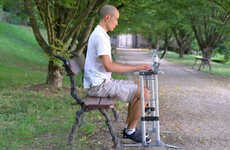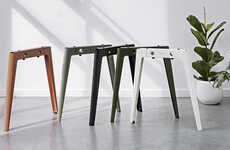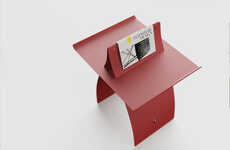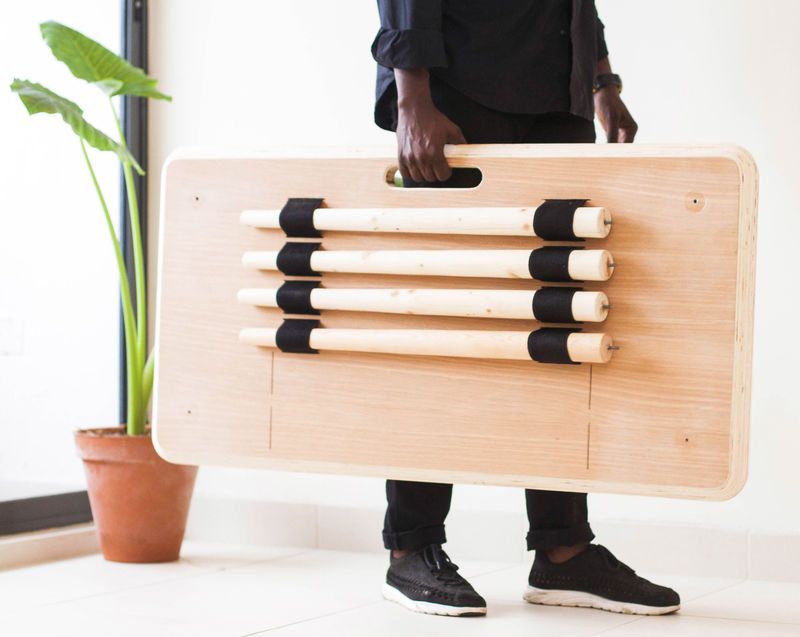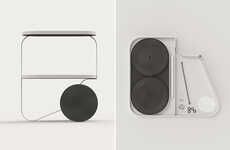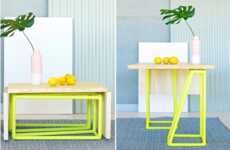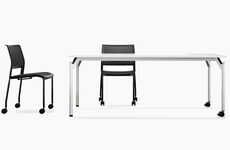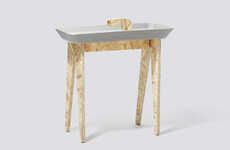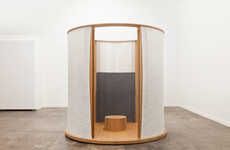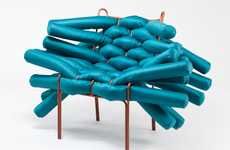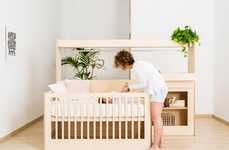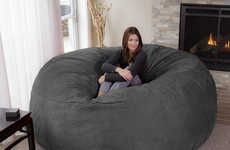
Nifemi Marcus-Bello's Tebur Table Has Detachable Legs
Joey Haar — October 27, 2016 — Art & Design
References: dezeen
Modern workers are more mobile than generations past, and Nifemi Marcus-Bello's Tebur desk is an acknowledgement of that mobility. The Nigerian designer's hand-crafted wooden table comes with detachable legs that fasten to the underside of the tabletop, making it easy to deconstruct and carry to any working locale.
Tebur's legs attach to the underside of the table by slipping into fabric loops pinned there. The loops are stable but also relatively low-profile, meaning they don't interfere with the table's clean design when it's upright and assembled. Tebur also comes with a smooth handle carved into one of its long edges, further adding to the ease of transportation.
The name Tebur comes from the Hausa word for table. Hausa is the locally spoken language in and around Lagos, Marcus-Bello's hometown.
Tebur's legs attach to the underside of the table by slipping into fabric loops pinned there. The loops are stable but also relatively low-profile, meaning they don't interfere with the table's clean design when it's upright and assembled. Tebur also comes with a smooth handle carved into one of its long edges, further adding to the ease of transportation.
The name Tebur comes from the Hausa word for table. Hausa is the locally spoken language in and around Lagos, Marcus-Bello's hometown.
Trend Themes
1. Mobile Workspace - The trend toward a highly mobile workforce highlights the need for furniture and accessories that can be easily transported and set up in various locations.
2. Flat-pack Furniture - Designers who create furniture with detachable or collapsible elements that can be easily packed and assembled have an opportunity to meet the demand for portable and space-saving pieces.
3. Handcrafted Design - Consumers are drawn to unique, artisanal pieces of furniture, and designers who can create handcrafted pieces with functional elements like detachable legs have a chance to differentiate themselves in a crowded market.
Industry Implications
1. Furniture Manufacturing - The furniture industry must adapt to the needs of a growing number of mobile workers by producing furniture that satisfies the trend toward portability and easy assembly.
2. E-commerce - Online retailers that specialize in flat-pack furniture or furniture accessories for mobile workers could capitalize on this growing trend with targeted marketing and product offerings.
3. Interior Design - Interior designers who focus on creating functional spaces for mobile workers could stand out by including flat-pack furniture in their designs, or by collaborating with furniture designers who specialize in this area.
6.7
Score
Popularity
Activity
Freshness



